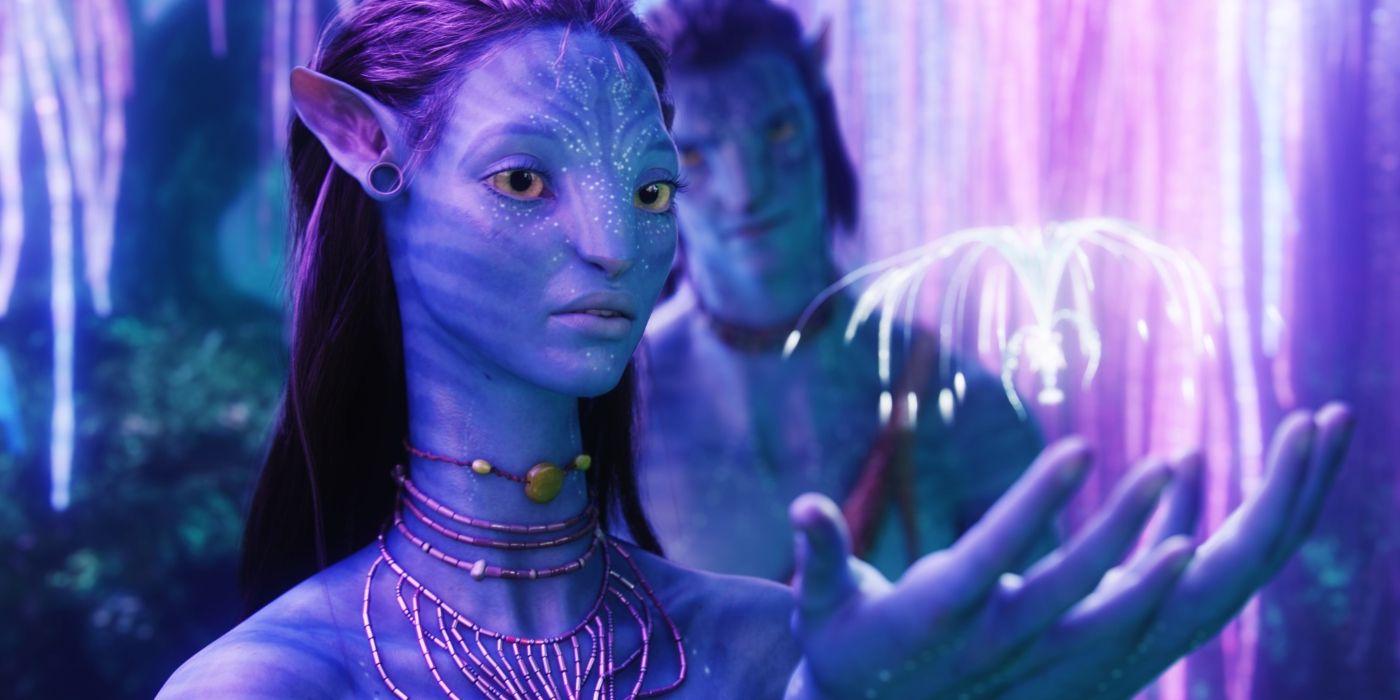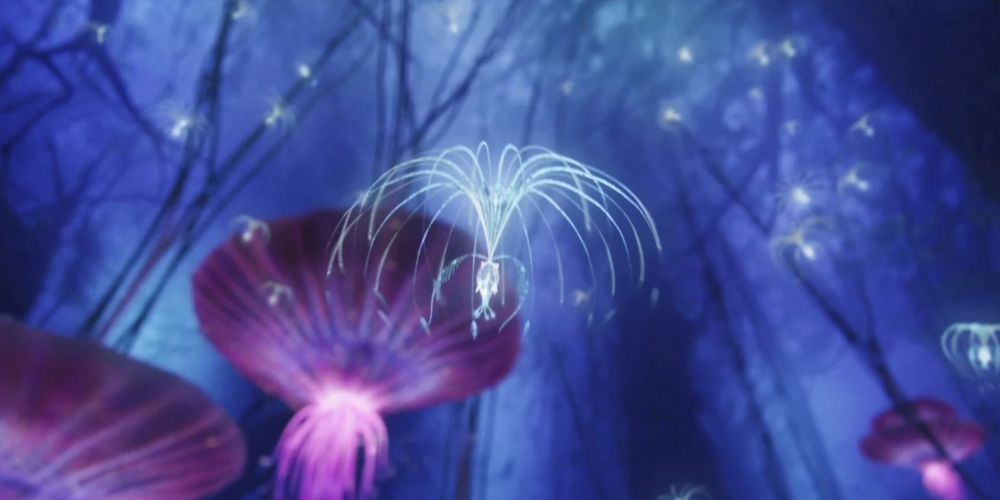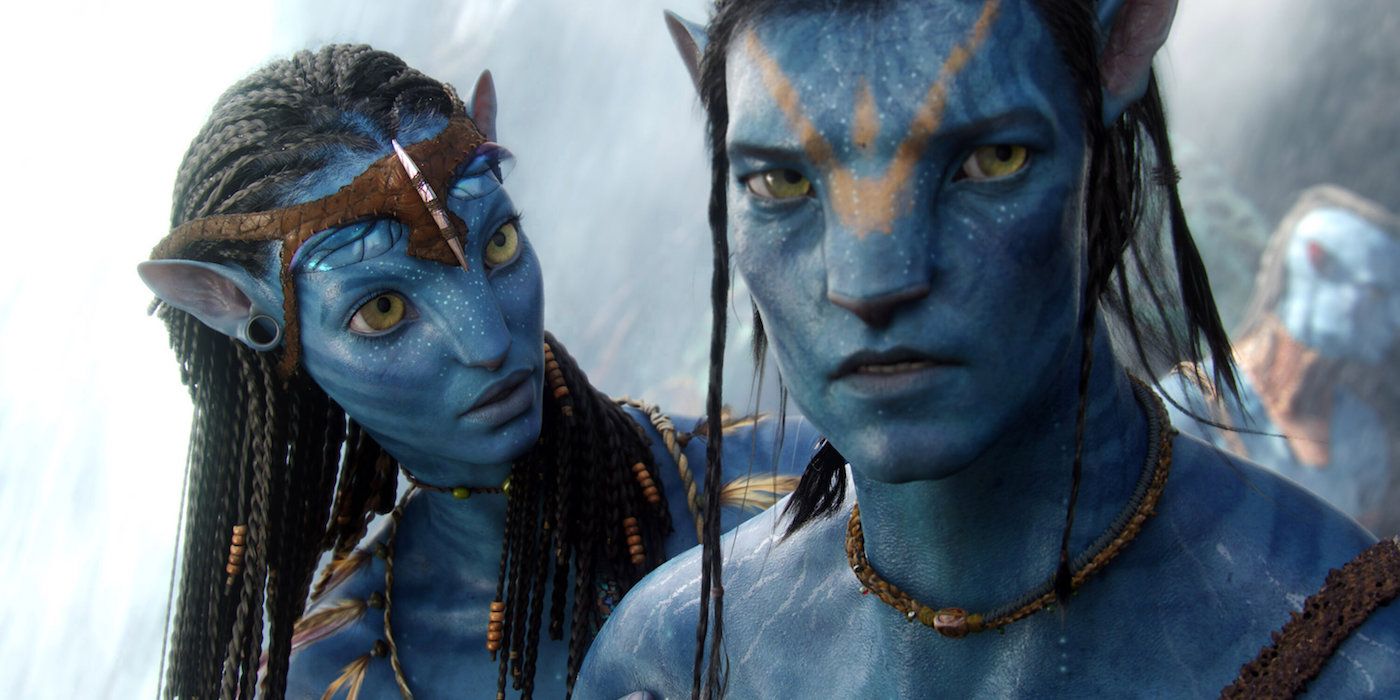With Avatar: The Way of Water in cinemas now, audiences have been reintroduced to Pandora after 13 years, and with Pandora comes Eywa. As the central figure in Na'vi spirituality and a fundamental part of forming Tsaheylu, Eywa is a pivotal part of Na'vi life. Analysis of the alien/god/tree's nature, however, seems to suggest it is not a god. Though its power might seem spiritual, several factors suggest that Avatar: The Way of Water's Eywa is, in fact, a mushroom, as opposed to a god or a complete alien.
As a manifestation of the unseen will of Pandora, it is unclear what Eywa truly is. The Na'vi people refer to it using feminine pronouns, worshipping her much like a deity, with their religious practices tied to natural wonders such as the Tree of Souls, but Eywa's will seems to extend far beyond that. No matter how much time has passed between Avatar and Avatar 2, the bond that exists between all life on Pandora speaks to a connection between beings -- one that can transcend verbal or even gestural communication. Eywa represents a hyper-natural connection between all organisms on Pandora, but not through divine intervention.
Avatar's Eywa Might Be a Mushroom Network
This same mass interconnectedness exists on Earth, but in a much simpler fashion. In old-growth forests, fungal networks or mycelium connect beneath the soil, joining acres upon acres of forestland together in communal hubs. Through these networks, mother trees, or the oldest of the arbors, can distribute carbon and nutrients to areas of the forest that need them most. Eywa mimics this system of distribution, albeit on a massive, interspecies scale. This will come in handy, as Avatar 2 resurrected a brutal villain.
This interspecies connection is possible through Tsaheylu, a Na'vi word meaning 'bond.' By physically connecting their ponytail tentacles, or neural queues, an appendage shared by many lifeforms on Pandora, the Na'vi can connect to the massive mycelium network that is Eywa. The seemingly supernatural moments of Avatar all tie back to the behavior of mycelial colonies, acting through the force afforded to them by Tsaheylu. For example, during the climax of Avatar, Eywa sends in a herd of hammerhead titanotheres. This moment is simultaneously better than most of Avatar: The Way of Water's action scenes and akin to mycelial networks distributing nutrients about the forest.
Eywa Possesses God-Like Qualities
All of this aside, Eywa seems to be capable of feats that fall beyond even the assumed capabilities of planetary mushroom colonies. Through the Tree of Souls, Jake Sully is able to move from a human body to a Na'vi body, and though Jake is not the key to saving Pandora, it is still an impressive feat. The sheer scale of organic manipulation necessary to perfectly transfer human consciousness, however, seems to be a feat only possible through some kind of divine intervention. Either that or a residual form of consciousness that remains in Eywa when one of those connected to her passes on. That would explain Doctor Grace Augustine's mention of 'being with Eywa' when she passed.
Avatar: The Way of Water's Eywa is an elusive, seemingly alien figure. Revered by the Na'vi as a god, it is easy to be swept up in the pageantry without examining the true nature of the network. Eywa seems to be a manifestation of a mycelium network -- a mushroom, albeit on a massive level. By shifting its various connections about, much like the mycelium network does nutrients, Eywa can influence the entirety of Pandora, but she is not a god. If anything, Avatar: The Way of Water's Eywa is a mushroom.
Avatar: The Way of Water is now playing in theaters.



